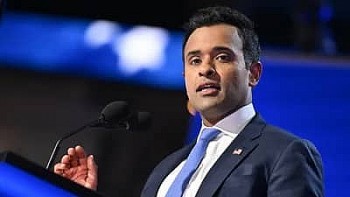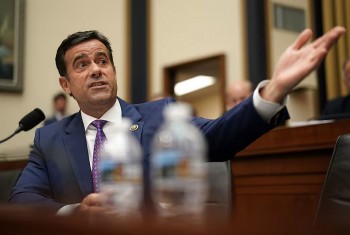DOGE's Head: Is Elon Musk a Secretary or Advisor?
 How Will Elon Musk Run DOGE? How Will Elon Musk Run DOGE? Elon Musk’s appointment to lead the newly-formed Department of Government Efficiency (DOGE) has sparked widespread debate over the legality and potential conflicts of interest surrounding ... |
This article breaks down the situation, explains the context, and clarifies the role Elon Musk will play in this newly formed body.
 |
| Dogecoin surges 10% as Elon Musk names proposed government department DOGE |
What Is DOGE?
The Department of Government Efficiency (DOGE) is not a traditional department of the U.S. federal government. Unlike entities such as the Department of Defense or Department of Education, DOGE operates as an advisory body, not as a formal governmental agency with statutory authority. It was recently created by Trump’s administration with the goal of identifying inefficiencies in the government and proposing solutions to streamline operations.
DOGE aims to tackle bureaucracy, improve cost management, and leverage technology to optimize governmental functions. President Trump described DOGE as a “think tank” for innovation and efficiency, making it distinct from established departments.
Learn more: What is the DOGE, and Who Will Lead It?
Elon Musk’s Role in DOGE
Musk’s appointment as the leader of DOGE raised questions about the nature of his responsibilities. Musk, known for his visionary leadership of companies like Tesla, SpaceX, and Neuralink, brings a reputation for innovation and disruption.
However, his position in DOGE is not equivalent to that of a Cabinet Secretary, such as the Secretary of Energy or Secretary of Commerce.
Instead, Musk’s role is advisory. He is tasked with providing insights, recommendations, and strategies for improving government efficiency. As an external advisor, Musk is not subject to the same scrutiny, formal confirmation processes, or legal obligations as Cabinet members.
Learn more: Could Elon Musk Have an Official Role in Trump’s 2.0 Cabinet?
Secretary vs. Advisor: What’s the Difference?
To understand Musk’s role, it’s crucial to distinguish between a Cabinet-level Secretary and an advisor.
Cabinet Secretaries
• Definition: Cabinet Secretaries lead formal departments established by Congress, such as the Department of State or Department of the Treasury.
• Responsibilities: They manage day-to-day operations, oversee budgets, and implement policies in their respective fields.
• Authority: Secretaries are part of the federal government hierarchy and report directly to the President. They must undergo Senate confirmation.
• Examples: Secretary of State Antony Blinken, Secretary of Defense Lloyd Austin.
Advisors
• Definition: Advisors provide guidance and expertise but do not hold formal leadership over government departments.
• Responsibilities: Their role is consultative. They propose ideas but lack the authority to enforce them.
• Authority: Advisors do not manage government staff or budgets, and their advice is not binding.
• Examples: White House advisors like Jared Kushner or Dr. Anthony Fauci in his advisory capacity.
Given these distinctions, Musk’s role clearly aligns with that of an advisor. DOGE, as a non-governmental advisory entity, further reinforces this classification.
Note: An official government agency cannot be created without an act of Congress.
Why the Confusion?
The confusion arises from the term “Department” in DOGE’s name, which implies a formal governmental entity. Historically, departments in the U.S. government refer to Cabinet-level agencies, such as the Department of Justice. However, DOGE is not a legally established department but rather a task force or committee.
Additionally, Musk’s high-profile nature contributes to the misconception. As one of the world’s most influential entrepreneurs, his involvement in any initiative is often seen as monumental, leading some to assume he holds a more formal title.
The Implications of Musk’s Appointment
1. Potential Impact
Musk’s innovative track record suggests he could bring significant changes to government efficiency. With his expertise in automation, artificial intelligence, and cost-saving measures, he is well-positioned to offer groundbreaking solutions.
2. Independence
As an advisor, Musk operates independently of federal bureaucracy. This independence allows him to critique inefficiencies without being bound by the constraints of a federal employee.
3. Lack of Formal Authority
Without formal authority, Musk’s recommendations must be approved and implemented by government officials. His influence, while substantial, depends on the administration’s willingness to act on his advice.
4. Public Perception
Musk’s appointment has already sparked debates about the role of private individuals in public governance. Some view his involvement as a step towards modernization, while others see it as blurring the lines between private enterprise and government.
Where Does DOGE Get Its Funding?A critical question about DOGE (Department of Government Efficiency) is its funding source. Since DOGE is not a formal government department established by Congress, it does not receive funding through the federal budget like traditional departments such as the Department of Defense or the Department of Education. Instead, DOGE operates with alternative funding mechanisms, which can be summarized as follows: Private Donations, Corporate Partnerships, Minimal Operating Costs, otential Public-Private Initiatives. |
Conclusion
Elon Musk’s leadership of DOGE marks an exciting intersection of private innovation and public policy. However, his role as an external advisor differentiates him from Cabinet Secretaries with formal governmental authority. While the title “Secretary” may sound fitting for someone of Musk’s stature, it does not reflect his actual position within DOGE.
Musk’s appointment represents a bold move to inject entrepreneurial thinking into the government. Whether this experiment will yield tangible results remains to be seen, but one thing is clear: Musk’s involvement in DOGE is not as a Secretary but as a visionary advisor.
FAQs
Q: Does Musk hold a formal government position?
No, Musk is not a government employee or Cabinet member. His role is advisory and external.
Q: Why isn’t Musk considered a “Secretary”?
The title “Secretary” is reserved for leaders of Cabinet-level departments established by law. Since DOGE is not a formal department, Musk does not qualify as a Secretary.
Q: What authority does Musk have?
Musk has no formal authority to make decisions or implement policies. He can only provide recommendations.
Q: Will Musk be paid for his role?
Details about Musk’s compensation, if any, have not been disclosed. However, advisors often serve pro bono or with minimal compensation.
 Who is Vivek Ramaswamy - Top Contender for Secretary of Commerce Who is Vivek Ramaswamy - Top Contender for Secretary of Commerce We explores Vivek Ramaswamy's journey from biotech executive to a rising star in conservative politics and Top Contender for Secretary of Commerce (Trump New Cabinet). |
 Who is Kristi Noem (Homeland Security Secretary): Personal Life, Career, and Net Worth Who is Kristi Noem (Homeland Security Secretary): Personal Life, Career, and Net Worth This article explores South Dakota Gov. Kristi Noem's personal life, career, achievements, and her potential role in Trump’s new Cabinet as Homeland Security Secretary. |
 Who is John Ratcliffe (CIA Director): Biography, Personal Life, Career, and Net Worth Who is John Ratcliffe (CIA Director): Biography, Personal Life, Career, and Net Worth Let's examine the political career, personal life, wife, kids, and other details of well-known politician John Ratcliffe, who is most likely to be a member ... |
 Who is Steven Witkoff, Middle East Envoy: Bio, Perosnal Life, Career, Net Worth Who is Steven Witkoff, Middle East Envoy: Bio, Perosnal Life, Career, Net Worth Steven Witkoff, a prominent real estate developer and philanthropist, has reportedly been tapped as the Middle East Envoy in Donald Trump’s prospective administration. Known for ... |
 Who is Pete Hegseth, Secretary of Defense: Army Time, Personal Life, Career, and Net Worth Who is Pete Hegseth, Secretary of Defense: Army Time, Personal Life, Career, and Net Worth Pete Hegseth, a decorated military veteran, has emerged as a top contender for Secretary of Defense in Donald Trump’s prospective administration. Check his biography, personal ... |
























